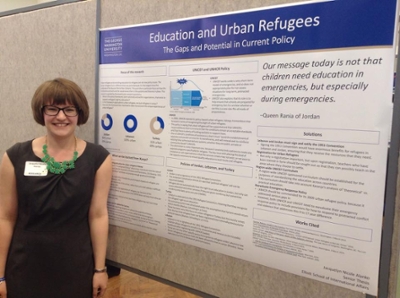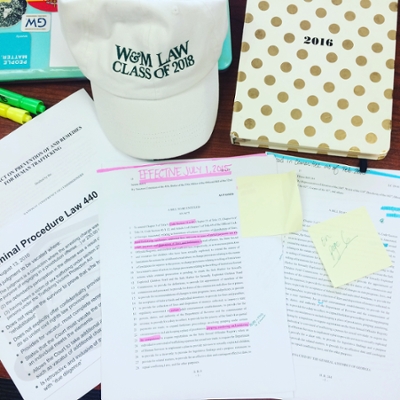Non-Stop
My coworkers call it "cheesing"- that huge, ridiculous smile I get when I get excited about something. I "cheese" at great calls with clients and when we have a breakthrough in a case. Sometimes I cheese about more nerdy things...like research.

I love research. My friends from undergrad know this all too well. They saw how I would light up when I did my research on girls' education in India my freshman year, or how in my senior year I could not stop working on my thesis on education for urban Syrian refugees. My process is simple: I put in my headphones, blast my study playlist (yes, I have a perfectly calibrated study playlist), and dig in. There's nothing quite like trudging through database after database, seven different version of a statute, and- would you belive it?- books in the library, just to find those perfect sources and the answer to a question. Give me a good question, and I'll come back with an answer. I love the feeling of answering a question that hasn't been answered yet. I love learning all things absolutely related, but sometimes mildly tangential, to a topic. the meatier the question, the more fun it is.
That's why this week was so fun. The director asked me to research how New York's Human Trafficking Courts work, and make a list of the pros and cons. Easy enough, right? Absolutely, but the best projects always take the researcher down the rabbit hole into a whole new set of questions. My research on New York's Human Trafficking Courts did just that, and led to my next big project of the week.
New York's Human Trafficking Intervention Courts (HTICs) were established statewide in 2013. Essentially, these courts divert all individuals who are charged with prostitution or prostitution-related offenses into a separate Human Trafficking Intervention Court that puts them in touch with service providers in the local area and, hopefully, helps them in the future. If a defendant is compliant with the court-mandated therapy (the typical "sentence"), then they can have the charges dismissed or reduced. However, this plan has three crucial flaws: (1) there is no follow-up or means of restricting the trafficker from continued involvement in the victim's counseling; (2) the courts put a strain on local service providers that may not be prepared for the influx of individuals; and (3) the courts reinforce police practices of arresting those engaging in prostitution, rather than the pimps and traffickers. A plan to implement similar courts in Georgia, Virginia, or elsewhere should be accompanied by a plan to focus arrests on johns and traffickers themselves, so that these courts do not become a permanent institution, but rather a solution to a side effect of current laws and practice.
While digging through my research on HTICs, I came across New York's vacatur laws. These laws allow anyone convicted of a crime that they committed while they were being trafficked to have the record expunged or sealed. Case law expanded this to mean any non-violent offense, not just a prostitution-related crime. This has endless benefits- it's easier for them to get jobs, but can also help with immigration paperwork (although this is typically already forgiven through waivers). New York was the first state to introduce vacatur laws in 2010.
My boss asked me to research the vacatur laws, and compare the laws that Georgia has on the books to the New York laws, and offer suggestions on how to improve Georgia policy. When I left work, I changed into my sweats and headed down to the library at Emory to snag a study room and get to work. I spent hours digging through different versions of the Act, breaking apart why the legislature wrote the law the way they did, and what it could mean for our clients and trafficking survivors across the state. This is living the dream.
At the end of the first act of "Hamilton", Aaron Burr asks Alexander Hamilton, "Why do you write like it's going out of style? Write day and night like it's going out of style? ( . . . ) Why do you write like history has its eyes on you?" This song is one of my favorites, because it encapsulates why I love research. History does have its eyes on me and on all of the lawmakers across this country. We are in the room where it happens. We have the power to make real change. My research is not "busy work". The cases I find, the statutory language that changes from draft to draft, and the differences between one state and another have profound impacts on people. A word deleted here or rephrasing there could literally change someone's life for the better. I will not throw away my shot to be part of that change.
